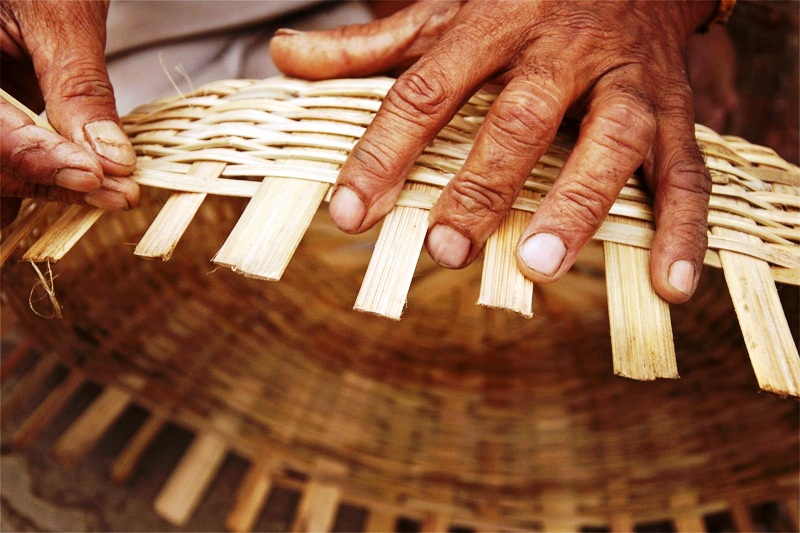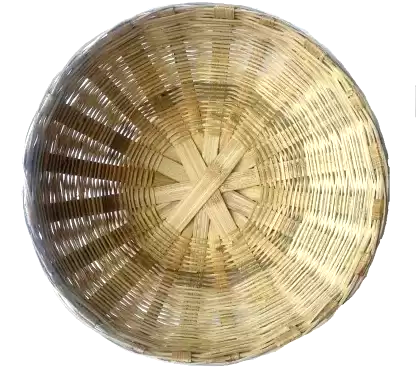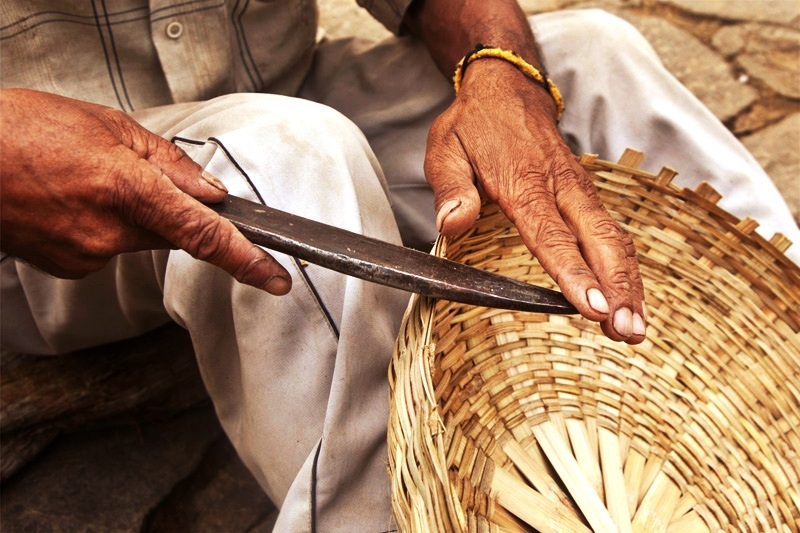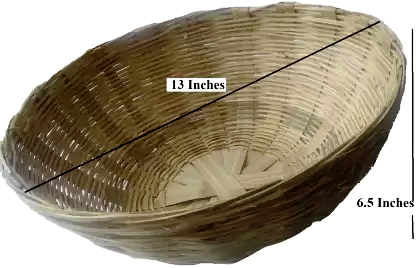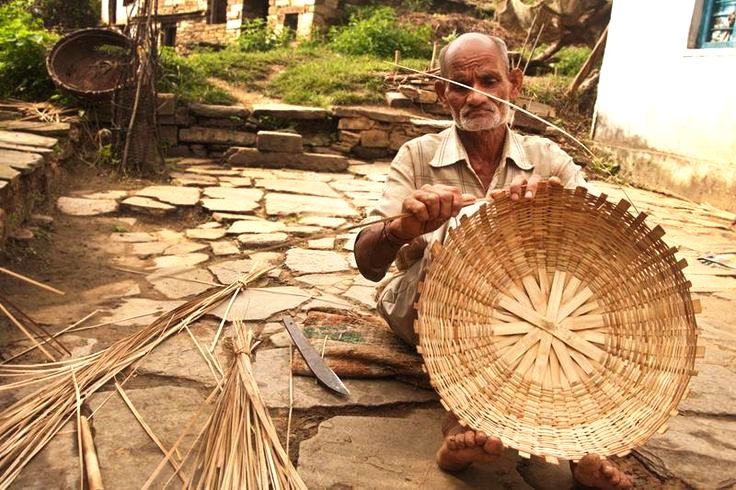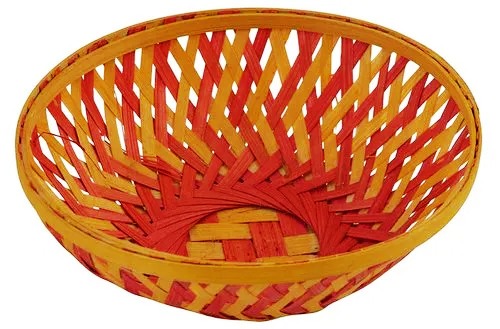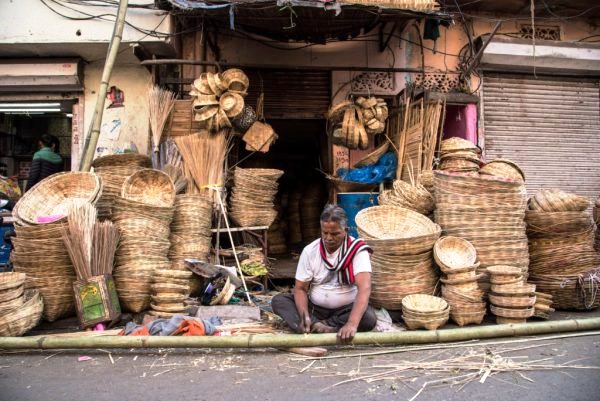"Rajasthani Bans ki Tokri" refers to traditional baskets made from bamboo, locally known as "bans" in the Hindi language. These baskets are crafted using bamboo strips, which are woven together using traditional techniques passed down through generations. Here are some details about Rajasthani Bans ki Tokri:
1. Material: The primary material used in making Rajasthani Bans ki Tokri is bamboo. Bamboo is a readily available and renewable resource in many parts of Rajasthan, making it an ideal material for crafting baskets and other items.
2. Craftsmanship: Skilled artisans handcraft Rajasthani Bans ki Tokri using intricate weaving techniques. The weaving patterns can vary, ranging from simple designs to more complex motifs, depending on the artisan's skill and creativity.
3. Versatility: Bans ki Tokri are versatile and have multiple uses. They can be used for storing and carrying various items such as fruits, vegetables, grains, or even household goods. They are also used in agricultural activities for carrying crops or as decorative pieces in homes.
4. Durability: Bamboo is known for its durability and strength, making Bans ki Tokri sturdy and long-lasting. Properly crafted baskets can withstand daily use and can last for years with minimal maintenance.
5. Cultural Significance: Bans ki Tokri holds cultural significance in Rajasthan and is an integral part of the state's traditional handicrafts. They are often used in religious ceremonies, festivals, and other cultural events, showcasing the rich heritage of the region.
6. Environmentally Friendly: Bamboo is a sustainable and eco-friendly material. It grows rapidly and requires minimal resources for cultivation, making it a preferable alternative to non-biodegradable materials like plastic.
7. Decorative Element: In addition to their functional use, Bans ki Tokri can also serve as decorative pieces in homes and gardens. Their natural texture and earthy tones add a rustic charm to interior spaces, enhancing the aesthetic appeal.
Overall, Rajasthani Bans ki Tokri exemplifies the craftsmanship, sustainability, and cultural heritage of Rajasthan, making them cherished items in both traditional and modern settings.

